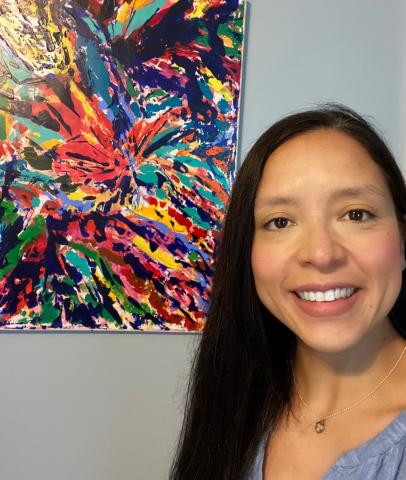“We must accept finite disappointment, but never lose infinite hope.”
Martin Luther King, Jr.
Primary care is not easy. With every patient encounter comes paperwork, results, patient communications, etc. It is easy to get overwhelmed. We know all too well that burnout is affecting 1 out of every 2 providers (Reference: https://www.medscape.com/2021-lifestyle-burnout.) When asked what the issue is, we can rattle off a list of complaints and “pains” of work. We see barriers, but no solutions.
It reminds me of the feeling I get when meeting a patient who is overwhelmed. They list symptom after symptom, complications, physical and emotional pain, and they see no solution to their problems. Patients can feel lost and uncared for. They experience the disease and the associated suffering when one loses hope.
It is in these moments when health care providers can have great impact. We can offer more than our lab orders and prescriptions. We can offer the balm of listening and understanding. It is in this beautiful moment when the art of medicine is revealed. I am always motivated and excited as I see my way through the patient’s fog. I love to help each one create an action plan to begin to heal from their illness, to offer a stepwise approach to work through their problems.
Similar to our patients, when we confront the same challenges day after day in health care and things do not change, it is easy for us to lose hope — hope that the system will change, hope that things will get easier or better, hope that the organization is keeping our interests in mind. We feel helpless to change the daily difficulties.
There are numerous interruptions that impact the flow of our work. We get in the habit of creating work-arounds to handle the problems that arise. However, this only leads to recurrent issues and waste. These work-arounds are like metaphorical Tylenol taken to handle the pain; it partially relieves the experience of the problem, but it will likely be back tomorrow.
Learning about Lean Management and A3 Process Improvement has been an exciting portion of the Primary Care Transformation Fellowship. With the new skills I am developing, I feel a sense of hope about my day and about the system itself.
I love revamping how I think about and approach the problems that arise during my daily work. I can see a problem as an opportunity, considering ways that our workflow can be improved. It shifts my focus from treading water in a sea of problems that do not change, to opening my eyes to opportunities for improvement, with a process that I can follow and a “help chain” that I can go to. I focus on eliminating wasted time and energy — energy that I can be using to provide better care for my patients or outside of work, spending quality time with my family.
My area of interest centers around provider burnout and well-being. This is a complex topic that requires systems-level, as well as individual, changes. Initially, I suffered from the aforementioned sense of helplessness. How can I create real change for our clinic? I needed to find that wellspring of hope within myself first before I could proceed. The fellowship has given me the opportunity to do so.
Research suggests that higher levels of hope are associated with lower levels of burnout. Cultivating a hopeful attitude can remedy the individual’s experience of burnout. And for me, continuous improvement projects present me with the opportunity to create a sense of meaning and joy from my work. Moreover, it provides a framework for us as an organization to cultivate hope that things will improve and wasted time and energy will be minimized. In doing so, we as individuals can utilize that energy to provide the best quality care we can while growing a sense of balance in our lives.
Catherine Isaac is a fellow with the Primary Care Transformation Fellowship Program. Email catherine.isaac@duke.edu with questions.
Editor’s note: Blogs represent the opinion of the author, not the Department of Family Medicine and Community Health, or Duke University.
